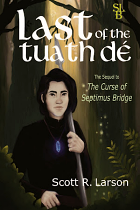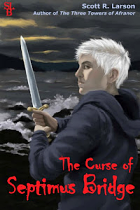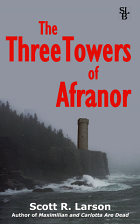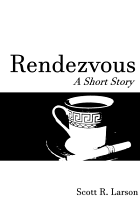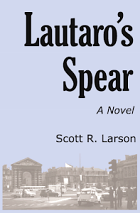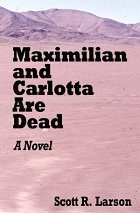Welcome home, Barnabas Collins
I don’t know if I’ve ever mentioned this before, but I used to watch this old TV show called Dark Shadows.
Ha, ha! There, I’ve had my lame little joke. If you’re surprised to find the title Dark Shadows here, then this is your first visit to this web site or else you need to get neurological attention. Otherwise, you probably suspect or know that I have not discussed nearly enough the biggest event in any DS fan’s life in literally decades, the release of Tim Burton’s feature film based on the old series.
So, here is my further discussion of the movie, to pile on to my original review and my comments two days ago. Please note that this will likely be of most (exclusive?) interest to fellow DS fans and I will not hold back from spoilers. If you’re a fan and you haven’t yet see the movie, trust me, you will enjoy it much more if you don’t read this before you see it. You have been warned! And here we go…
• The music box: I have already mentioned a couple of quibbles, including this one. The movie did a great job of including moments and images that were emblematic or at least evocative of the original series. An obvious one, though, was left out. That would be Josette’s music box with its haunting melody by Robert Cobert. That little prop went a long way to establishing the haunting love story of Barnabas and Josette and Josette’s ghostly presence in the Old House. Burton and his writers missed a chance to include another great element that would have cost them virtually nothing in terms of time or narrative, and it would have been perfectly fine even if they had wanted a different tune for the music box composed by Danny Elfman. Burton and screenwriter Seth Grahame-Smith have said in interviews that a lot of scenes were cut made in order to keep the movie to a standard running time and that those scenes would show up in the home video release. Perhaps the music box will show up there (but I’m guessing it won’t).
• The rules of vampirism: This was my other quibble. Different works of literature have observed varying rules as to what a vampire can and cannot do. The Dan Curtis series always stuck to what I consider the standard rule that the vampire cannot be out of his coffin after sunrise and before sundown. In Burton’s movie, Johnny Depp’s Barnabas wanders around in the daytime with no problem as long as he is not exposed to direct sunlight. I don’t agree with it, but it doesn’t ruin the movie for me at all. It’s a lot better than what my kid calls those “sparkly vampires” who don’t seem to have any rules in Twilight.
• Victoria Winters: One of the really weird things about the original Dan Curtis series was the point-of-view character, the young governess Victoria Winters. For the first year or two or so, we saw everything from her point of view. She was raised in a foundling home and did not know who her parents were, but checks for her support came regularly from Collinsport. Clearly, at some point there was going to be a big reveal that Victoria had some connection to the Collins family. But it never happened. The writers and the audience got distracted with the introduction of the Barnabas character and Victoria became less important. Then Alexandra Moltke, the actor who played her, left the show. Another actor took over the role just long enough to marry Victoria off to her 18th century love and go back in time to live with him forever. And that was that. We never found out who her parents were or how she wound up in that foundling home. Finally, in this movie we not only learn her origin but actually see her parents in a flashback. In this movie, we learn that Victoria was always the reincarnation of Josette and that is what drew her Collinwood.
• Maggie Evans: It was clear for a long time that there would be no Maggie Evans character in the movie. I was sorry about that, but I understood why. In the series, it was Maggie, not Victoria, who was a dead ringer for Barnabas’s lost love. After Victoria was written out, Maggie replaced her as David Collins’s governess, and Victoria and Maggie became forever inter-tangled. When Curtis adapted the series for the big screen in House of Dark Shadows, Maggie was the governess and there was no Victoria. So it was a great surprise that, in a brilliant stroke, the movie conflated the two characters, making the name Victoria Winters an alias for Maggie Evans. Of course, all of this means that we didn’t get the reveal we always expected, that Victoria was really, in some way, a Collins. We had always wondered, was she Elizabeth Collins Stoddard’s love child? Or her brother Roger’s? Or maybe that of Elizabeth’s long missing husband?
• Paul Stoddard: Speaking of Liz’s missing husband, it was kind of surprising that, when all sorts of secrets and reveals started spilling out in the final reel, they didn’t have some sort of explanation of what happened to Carolyn’s father. (If it was there, I missed it.) The only reference I heard was when Chloë Grace Moretz voices the opening lines of Alice Cooper’s “The Ballad of Dwight Fry”: “Mommy, where’s daddy? He’s been gone for so long, do you think he will ever come home?” There was so much going on that we really didn’t miss getting some explanation for the absent Paul Stoddard the way we did for David’s mother, but it seems strange not to have tossed that in. (This was something that was resolved in the TV series.) Maybe this is another thing that will turn up in the DVD extras (or not).
• Dr. Hoffman: One of my favorite characters in the original series was Julia Hoffman. Played by Grayson Hall, she was brought in to investigate the vampire attacks and was meant to become a fatality in the process. As recounted by Hall’s son Matthew recently on WFMU radio (he blogs at Nantucket ’73), to make the job interesting for herself, Hall decided that she would play Hoffman as if she was in love with Barnabas. Over time the writers and the audience picked up on this, and because of the interesting dynamic her character ended up being made permanent along with Jonathan Frid’s. The pair of them ended up as partners solving a series of supernatural mysteries or problems, usually involving time travel or a parallel universe. They were like Holmes and Watson or the Doctor (as in Who) and any one of the Doctor’s companions. Given the specific story Burton is telling, there was no way that her character could be so important, and Helena Bonham Carter, red wig aside, plays her completely different from Hall’s version. But someone much more protective of the character than I, Matt Hall (whose father Sam was a writer on the original series), has written that “even as they oversimplified Julia into a smoking, drinking floozy, there was some preserve of love and vulnerability at her core.” So who am I to argue? The writers did pay tribute to two of the most memorably strange things about the character: 1) the way she came to Collinwood in a professional capacity and ended up staying for years as virtually one of the family and 2) the way she could hypnotize and elicit all sorts of information and erase memories just by swinging a watch on a chain. And at the very end we see that Julia has not actually died, which raises the possibility and hope that, in a sequel, she and Barnabas could indeed join forces once again.
• Elizabeth Collins Stoddard: Matt Hall picked up on something that I hadn’t by suggesting that in this movie Dr. Hoffman had been conflated with Elizabeth, making Michelle Pfeiffer the vampire’s confidante instead. (The original Elizabeth, played by Joan Bennett, never had a clue as to what Barnabas was up to or about any of the other supernatural happenings going on all around her.) But in this movie, Barnabas’s vampirism is barely a secret anyway. It may be a comment on our times that nothing is shocking anymore. Anyway, it is nice to see the Elizabeth character have more gumption than in the original, where she became seriously marginalized once the stories started focusing on Barnabas. I certainly cannot imagine Joan Bennett locking and loading her shotgun to protect the family homestead, as Michelle Pfeiffer does.
• Joshua and Naomi: I have seen some comments expressing surprise or even disappointment that Barnabas’s parents were not played by Pfeiffer and Jonny Lee Miller. True, such casting would have been one more nod to the original series, which had regular cast members taking on different roles as the action switched to a different era or a parallel universe. While I always appreciated that this made the work more interesting for the actors and kept them employed, I always felt that this was a distraction from the illusion that the stories were really happening. There was a definite plot reason that Josette and Maggie were played by the same actor, but it was always undermined by the fact that everyone else in the family also looked just like some ancestor or descendent. So I’m totally okay not to have had this particular nod. (Note: This is another thing Fringe has in common with Dark Shadows. On that series, most of the main cast get to play a second character when it switches to a parallel world.)
• Professor Stokes: Another one of my favorite characters was this academic descendent of Barnabas’s faithful servant Ben. He was sort of a Van Helsing figure who eventually wound up joining Barnabas and Julia in their adventures. Of course, there was no room for him in a 113-minute movie, so I am totally okay with him being excluded. I mean, if you tried to bring him into it, where would you draw the line? There were so many great characters during the series’ five-year run, the movie set would be completely overrun if you tried to work them all in. In the grand scheme of things, Burton and his writers made pretty much all the right decisions to make a coherent movie that is also a loving homage. Still, I wouldn’t mind seeing the three-hour director’s cut…
-S.L., 16 May 2012
If you would like to respond to this commentary or to anything else on this web site, please send a message to feedback@scottsmovies.com. Messages sent to this address will be considered for publishing on the Feedback Page without attribution. (That means your name, email address or anything else that might identify you won’t be included.) Messages published will be at my discretion and subject to editing. But I promise not to leave something out just because it’s unflattering.
If you would like to send me a message but not have it considered for publishing, you can send it to scott@scottsmovies.com.















